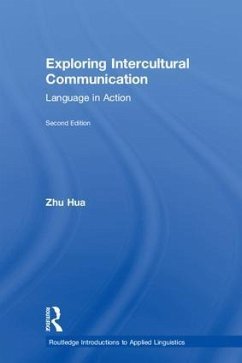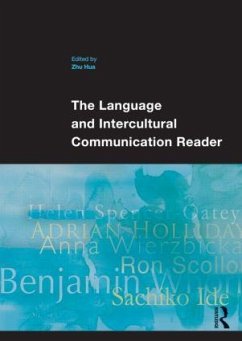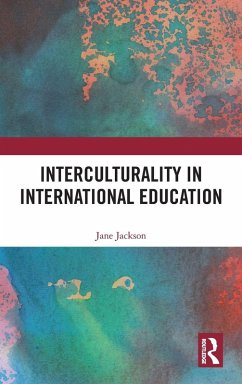
Interculturality in Flux
Theories of Change and Continuity
Versandkostenfrei!
Erscheint vorauss. 20. Januar 2026
164,99 €
inkl. MwSt.
Weitere Ausgaben:

PAYBACK Punkte
82 °P sammeln!
Interculturality in Flux is an audacious and self-reflexive interrogation of intercultural scholarship and education. Redefining intellectual retrospection as a process of fundamental critique, Fred Dervin turns his analytical lens inward, exposing the contradictions, weaknesses and evolving tensions within his own work. At its core, the book addresses the tension between polished academic language and the uncomfortable truths beneath. The author reveals how power imbalances are often obscured by self-complacency, diplomacy and/or theoretical sophistication in intercultural research and educat...
Interculturality in Flux is an audacious and self-reflexive interrogation of intercultural scholarship and education. Redefining intellectual retrospection as a process of fundamental critique, Fred Dervin turns his analytical lens inward, exposing the contradictions, weaknesses and evolving tensions within his own work. At its core, the book addresses the tension between polished academic language and the uncomfortable truths beneath. The author reveals how power imbalances are often obscured by self-complacency, diplomacy and/or theoretical sophistication in intercultural research and education. Through its dynamic, non-linear structure, the book invites readers to engage not just with ideas, but also with the lived complexities behind their production and dissemination. Spanning a decade of scholarship, it revisits and scrutinises key themes such as Eurocentrism, neoliberal commodification and methodological rigidity. Rejecting static knowledge, the author frames interculturality instead as an ever-shifting terrain of ideological and linguistic negotiation. Rather than offering a mere retrospective, this work demands that scholars interrogate their own intellectual trajectories, confront the limitations of dominant paradigms and embrace the messy and often contradictory realities of intercultural communication, education and research. With its distinctive features of reflexivity, epistemic humility and willingness to challenge established norms, this book will appeal to educators, students and researchers alike.












